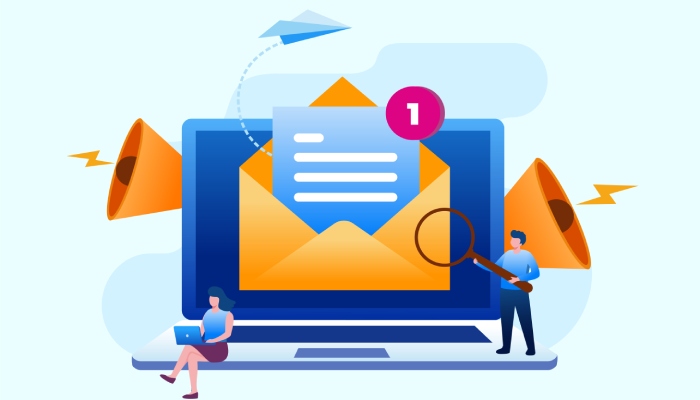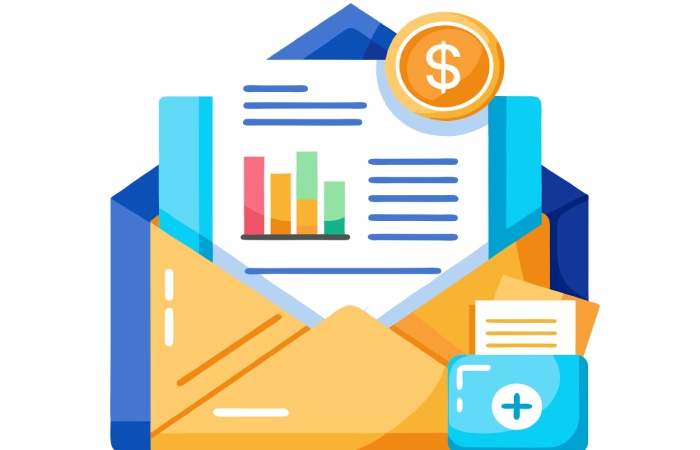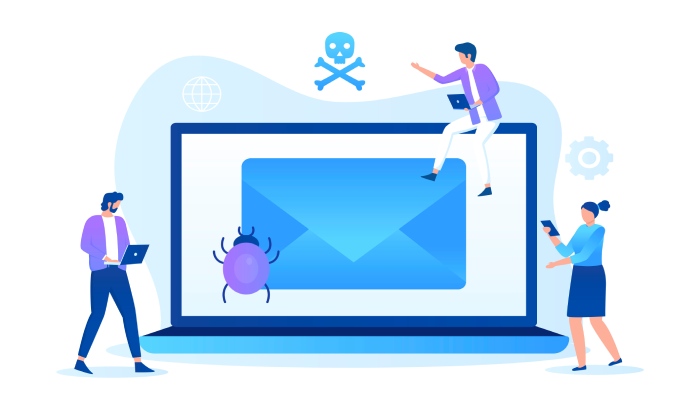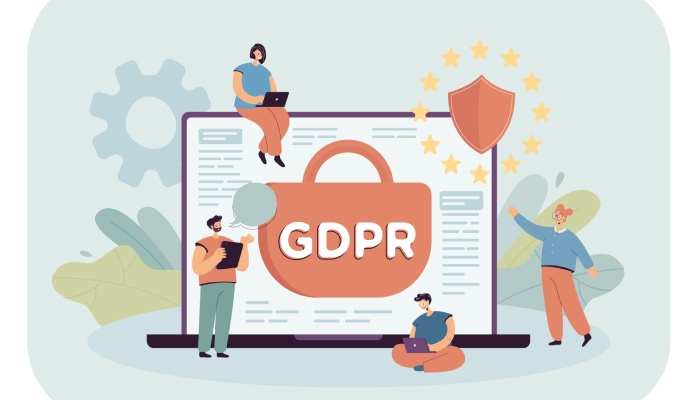Unlock Actionable Insights Hidden In Emails Through Powerful Ai Email Analyzer Technology
In today’s digital world, emails are more than just messages—they’re a rich source of data that holds valuable insights about customer behavior, business communications, and operational trends. However, much of this information remains hidden in unstructured email content, making it difficult for organizations to fully leverage. AI email analyzer technology transforms this untapped data into actionable insights by using advanced machine learning and natural language processing to analyze email content, metadata, and patterns efficiently.
By going beyond traditional email tools, AI email analyzers help businesses classify messages, detect threats, and understand sentiment, all while improving workflow efficiency. From enhancing email security and compliance to optimizing marketing campaigns and lead generation, these intelligent systems enable organizations to unlock hidden intelligence within every email, driving smarter decisions and more effective communication strategies.
Understanding AI Email Analyzer Technology
In today’s digital age, email remains a pivotal channel for personal communication, business operations, and marketing outreach. Behind every message lies a wealth of unstructured data waiting to be unlocked. AI email analyzer technology harnesses advanced machine learning (ML) and natural language processing (NLP) techniques to transform raw email content into actionable insights. By employing sophisticated email parsing methods, such as email header analysis and email metadata extraction, AI-driven tools scrutinize both the structure and semantics of emails to elevate email analytics beyond traditional methods used in popular email clients like Microsoft Outlook and Google Gmail.
These AI-powered email analyzers go far beyond basic email filtering or spam detection, enabling comprehensive email classification and email content analysis. They systematically identify patterns, detect phishing threats, and assess email sentiment, providing organizations a holistic view of their email communications. Email parsing APIs also allow seamless email integration with platforms like Zoho Mail, ensuring effortless scalability and adaptability.

How AI Transforms Email Data into Actionable Insights
AI systems begin email analysis by extracting key data points through email data extraction modules. These include email subject line analysis, email attachment scanning, and email threading, all integral to building context around each correspondence. Advanced natural language processing algorithms interpret email sentiment scoring and perform email sentiment analysis to determine the emotional tone within inbound emails.
Machine learning models leverage email pattern recognition to classify emails—segregating promotional content, transactional messages, and potentially malicious threats detected via email virus scanning and email threat detection technologies. This process enhances email security and compliance efforts by identifying spam or malicious emails, often missed by conventional email spam filters such as those provided by Barracuda Networks or Symantec Email Security.
Moreover, AI facilitates email deliverability monitoring, tracking metrics such as email bounce management and email engagement metrics. Coupled with inbound email analysis, these insights enable organizations to optimize email marketing analysis and improve email campaign analysis outcomes through platforms like Mailchimp, HubSpot Email Marketing, and Salesforce Pardot.
Key Features of Modern AI Email Analyzers
Modern AI email analyzers are equipped with an array of functionalities designed to streamline and enrich email workflow. Key features include:
- Email Parsing and Metadata Extraction: Utilizing email parsing APIs, analyzers extract structured data from unstructured emails, enabling efficient inbox management.
- Email Classification and Email Filtering: Classifying inbound messages into categories such as priority, promotional, spam, or phishing with high accuracy supports optimized email response management.
- Spam and Phishing Detection: Integrated with advanced email spam filters and phishing detection algorithms, solutions from FireEye, Mimecast, and Proofpoint help safeguard email security.
- Email Threading and Email Monitoring: Maintaining conversation context improves productivity by simplifying follow-ups and collaboration.
- Email Sentiment Scoring and Content Analysis: Sentiment analysis informs marketers and sales teams about customer mood and engagement, measured alongside email engagement metrics.
- Email Reputation and Deliverability Management: Features like email reputation management aid in combating blacklists, while tools such as Return Path and Valimail provide email validation services critical for ensuring inbox placement.
- Integration with Email Marketing Platforms: Compatibility with platforms like ActiveCampaign and Constant Contact enhances email campaign analysis.
- Email Automation and Workflow Optimization: Automating repetitive tasks through email automation improves response time and reduces manual effort.
- Email Security and Compliance Tools: Email encryption, email archiving, and policy enforcement with tools from Tessian and Barracuda Networks ensure regulatory compliance and protection.
- Lead Generation and Email Tracking: Leveraging email tracking combined with email lead generation tools from Snov.io and Hunter.io helps convert prospects more effectively.

Benefits of Implementing AI Email Analysis for Businesses
Adopting AI email analyzer technology delivers transformative benefits across various business functions:
- Enhanced Email Productivity: By automating inbox management and email response workflows, employees spend less time manually sorting emails, increasing overall productivity.
- Improved Email Security and Threat Detection: Sophisticated email threat detection mechanisms, including email virus scanning and advanced phishing detection, protect organizational assets and prevent costly breaches.
- Optimized Email Deliverability and Campaign Performance: Real-time email deliverability monitoring and bounce management improve sender reputation, ensuring marketing messages reach targeted audiences.
- Data-Driven Decision Making: AI-driven email analytics and sentiment analysis empower marketing and sales teams to fine-tune messaging and outreach strategies through granular email campaign analysis and email marketing analysis.
- Regulatory Compliance and Archiving: Automated email archiving and compliance auditing facilitate adherence to legal standards and internal policies.
- Comprehensive Email Visibility: Organizations gain full transparency over email metadata, content, and performance metrics, aiding in efficient inbox management and email monitoring.
Use Cases: Real-World Applications of AI Email Analyzers
Email Security and Threat Prevention
Security providers like Proofpoint, FireEye, and Symantec Email Security employ AI email analyzers for real-time email threat detection, phishing detection, and spam filtering. Integrating these solutions within enterprise email environments enhances email security protocols, safeguarding corporate networks against cyberattacks.
Marketing and Sales Optimization
Email marketing platforms such as Mailchimp, HubSpot Email Marketing, and Salesforce Pardot utilize AI-powered email parsing and email engagement metrics to deliver precise email analytics. These capabilities enable businesses to analyze email subject line effectiveness, refine email content analysis, and optimize campaign strategies to boost lead generation and conversions.

Customer Service and Inbox Management
By deploying AI for email classification, email threading, and sentiment scoring, companies improve customer service responsiveness and prioritize communications effectively. Email automation powered by tools like Zoho Mail ensures seamless email response management, reducing delays and improving customer satisfaction.
Regulatory Compliance and Email Governance
Organizations handle email compliance and email archiving through integrated AI email analyzers, automating policy enforcement and ensuring retention protocols are met. This guarantees compliance with industry frameworks and data protection laws.
Sales Prospecting and Lead Generation
Tools like Snov.io and Hunter.io incorporate AI email parsing APIs to validate contacts, extract email metadata, and track email engagement, facilitating efficient email lead generation and nurturing processes within sales teams.
Incorporating AI email analyzer technology allows organizations to unlock hidden insights in emails, augment security postures, refine marketing strategies, and boost operational efficiencies, thus driving business growth and competitive advantage in today’s digital communication landscape.
Overcoming Challenges: Common Obstacles in Email Analysis and How AI Addresses Them
Email analysis involves complex challenges such as handling massive volumes of inbound emails, differentiating legitimate messages from spam, and extracting meaningful insights from unstructured content. Traditional email spam filters and phishing detection tools often struggle with false positives and negatives, impacting email deliverability and user productivity. AI-powered solutions leverage natural language processing (NLP) and machine learning algorithms to enhance email filtering with adaptive email classification techniques, improving spam detection and email threat detection accuracy significantly.
For instance, AI-driven email parsers automatically conduct email header analysis and extract key email metadata, facilitating faster email data extraction and inbound email analysis. This allows enterprises to perform deep email content analysis and sentiment analysis to gauge customer intent or internal sentiment. AI’s pattern recognition capabilities improve email reputation management by assessing sender behavior, helping to reduce bounce management and promote email compliance.

Furthermore, AI addresses the challenges of email archiving and email monitoring by categorizing emails based on their workflow context, improving inbox management and enabling seamless email automation. By integrating advanced email encryption and email attachment scanning, AI also fortifies email security against virus and phishing threats, ensuring safe email communication.
Integrating AI Email Analyzers with Existing Communication Tools
A crucial factor in the adoption of AI email analytics is smooth email integration with popular email clients and security platforms. Leading email clients such as Microsoft Outlook, Google Gmail, and Zoho Mail benefit from AI enhancements through API-based email parsing integration. These integrations enable automatic email tracking, real-time email deliverability monitoring, and improved email workflow without disrupting user experience.
Security-focused platforms like Mimecast, Proofpoint, Barracuda Networks, FireEye, and Symantec Email Security seamlessly incorporate AI-driven email threat detection features, including advanced phishing detection and email virus scanning modules. Marketing-centric tools such as Mailchimp, HubSpot Email Marketing, Salesforce Pardot, Constant Contact, and ActiveCampaign rely on AI email campaign analysis to optimize email engagement metrics through email subject line analysis and email campaign segmentation.
Additionally, integrating AI email analytics with inbound email analysis supports enhanced email response management by providing sentiment scoring and email lead generation insights. This connectivity is typically supported through flexible email parsing APIs and real-time data synchronization, which augment email productivity and improve email deliverability outcomes.
Ensuring Data Privacy and Security in AI Email Analytics
Given the sensitive nature of email communications, AI email analytics platforms must prioritize robust email security and data privacy protocols. Compliance with regulations such as GDPR and HIPAA mandates comprehensive email compliance strategies, including encrypted storage and secure email encryption during transmission. AI-powered email spam filter and email threat detection systems must ensure minimal data exposure while maximizing detection capabilities.
Given the sensitive nature of email communications, AI email analytics platforms must prioritize robust email security and data privacy protocols. Compliance with regulations such as GDPR and HIPAA mandates comprehensive email compliance strategies, including encrypted storage and secure email encryption during transmission.
AI-powered email spam filter and email threat detection systems must ensure minimal data exposure while maximizing detection capabilities. SPF, DKIM, and DMARC complement AI email analyzer technology by authenticating sender identities and preventing spoofed or fraudulent emails, ensuring more accurate analysis and enhanced email security.
Trusted cybersecurity vendors such as Tessian and Valimail offer specialized email validation and email reputation management solutions that complement AI analytics to prevent spoofing and deliverability issues. Furthermore, email attachment scanning is vital to prevent malware proliferation, complemented by email virus scanning technologies embedded within leading email security suites.

Email archiving and monitoring solutions employ machine learning models to safeguard historical email data while providing auditing capabilities without compromising privacy. Organizations implementing AI email analyzers should consider endpoint security, multifactor authentication, and data anonymization techniques to maintain a secure environment and protect email metadata used during AI processing.
Future Trends: The Evolution of AI in Email Analysis
The future of AI in email analysis is poised to advance with more sophisticated machine learning models and deeper natural language understanding. Emerging techniques in semantic email content analysis and context-aware email classification will enable real-time email deliverability optimization and highly personalized email engagement scoring.
AI-driven sentiment analysis and email threading enhancements will improve workflow automation by better understanding conversation context, facilitating more efficient email response management. Predictive analytics powered by pattern recognition will empower marketers to refine email marketing analysis and email campaign analysis, increasing conversion through tailored email subject line analysis and bounce management.
The incorporation of email parsing APIs within comprehensive email integration platforms suggests a rise in hybrid AI tools that combine email client capabilities and cloud-based analytics for unified inbox management and automated email lead generation workflows. Innovations in secure AI, such as confidential computing, will continue bolstering email encryption and compliance-driven analytics.
Steps to Choose and Implement the Right AI Email Analyzer Solution
Selecting the optimal AI email analyzer involves several strategic steps to align with organizational needs:
- Define Objectives: Identify whether the primary focus is on email spam filter enhancement, email marketing analysis, phishing detection, or email productivity improvement.
- Evaluate Integration Compatibility: Ensure the AI tool supports seamless email integration with chosen email clients like Microsoft Outlook, Google Gmail, or platforms such as Zoho Mail, SparkPost, or SendGrid.
- Assess AI Capabilities: Look for robust natural language processing, email header analysis, and machine learning features that support email classification, email pattern recognition, and advanced email threat detection.
- Consider Data Security and Compliance: Verify that the solution incorporates strong email encryption, email archiving standards, and complies with email compliance regulations.
- Test Deployment: Pilot the AI email analyzer across specific email workflows, monitoring email deliverability, email engagement metrics, and observing improvements in inbox management and email automation.
- Leverage Analytics and Reporting: Utilize email campaign analysis dashboards and email marketing analysis reports provided to fine-tune email subject line analysis and email bounce management.
Platforms offered by vendors such as Return Path, Valimail, Tessian, and FireEye provide comprehensive packages combining AI-powered email parsing APIs, email data extraction, and secure email automation capabilities, facilitating smoother adoption and measurable performance gains.
FAQs
What is the role of an email parser in AI email analytics?
An email parser extracts structured data from unstructured email content by analyzing the email headers, metadata, and body text. This process enables machine learning models to perform accurate email classification, sentiment analysis, and content analysis for improved email workflow and automation.
How does AI improve email spam filter and phishing detection?
AI enhances spam detection and phishing detection by using natural language processing and pattern recognition to identify suspicious emails more accurately than traditional filters. It continuously learns from new threats, improving email threat detection and reducing false positives.
Can AI email analyzers integrate with popular email clients like Microsoft Outlook and Gmail?
Yes, most advanced AI email analyzers offer API integration and plugins that work seamlessly with email clients such as Microsoft Outlook, Google Gmail, and Zoho Mail, enabling features like real-time email tracking, inbox management, and email deliverability monitoring.

How do AI tools maintain data privacy while analyzing emails?
AI email analytics platforms implement strong email encryption, secure data archiving, and comply with regulations such as GDPR and HIPAA. Techniques like data anonymization and controlled metadata usage ensure user privacy while enabling effective email monitoring and threat detection.
What future developments can we expect in AI email analysis?
Future innovations include enhanced semantic content analysis, improved email threading, and context-aware sentiment scoring. Machine learning will further personalize email marketing analysis and lead generation, while advances in secure AI will bolster email security and compliance.
Which vendors are leading in AI email threat detection and email reputation management?
Companies like Mimecast, Proofpoint, Barracuda Networks, FireEye, Symantec Email Security, Tessian, and Valimail are at the forefront, combining AI-driven email antivirus scanning, phishing detection, and sophisticated email reputation monitoring solutions.
Key Takeaways
- AI-powered email parsing and machine learning substantially improve email filtering, spam detection, and phishing detection accuracy.
- Integration of AI email analyzers with email clients like Microsoft Outlook and Gmail enhances email automation, tracking, and productivity.
- Ensuring data privacy and compliance through encryption and secure email archiving is critical in AI email analytics deployment.
- Future AI email analysis will leverage advanced natural language processing and predictive analytics for superior email marketing and response management.
- Selecting the right AI email analyzer requires evaluating integration options, AI capabilities, data security features, and alignment with business objectives.







